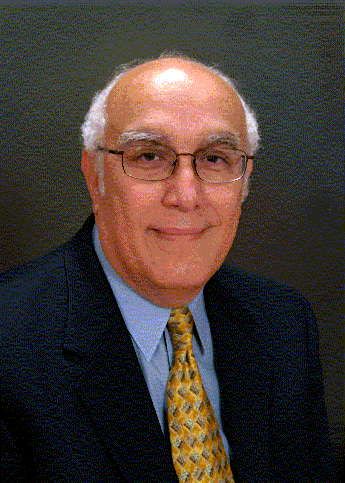|
| Biography |
| |
 Dr. Abou-Gharbia received his BS in Pharmaceutical Sciences in 1971, MS in Organic Chemistry in 1974 from Cairo University, and PhD in 1979 from The University of Pennsylvania followed by a two-year NIH Postdoctoral Fellowship at Temple University. After joining Wyeth in 1982 he has advanced through roles of increasing responsibility to Senior Vice President & Head of Chemical & Screening Sciences. In his current role he oversees Wyeth’s Chemistry and Screening Discovery research efforts at four sites. He and his research team have contributed to the discovery of many drugs including: first-in-class Antidepressant Effexor; Anticancer Agent Mylotarg; a Sedative Hypnotic Sonata; a Broad Spectrum Antibiotic Tygacil; a Non-Steroidal HRT Bazedoxifene; an anticancer rapamycin derivative, Torisel (Temsirolimus); and, an SNRI Antidepressant, Exsira (DVS-23).Scientific contributions include over 150 invited lectures, presentations and publications; inventor on 95 US-issued US patents and over 300 patents worldwide. His scientific achievements were recognized by receiving several awards. Scientific and Professional activities include ACS, AAAS, NYAS, The Royal Society of Chemistry, Board of Visitors, Temple U. Pharmacy School, and the Editorial and Scientific Advisory Boards of many journals. He holds several academic appointments: adjunct Professor of Medicinal Chemistry at Temple University, Cairo University and the University of Ferrara, IT.
Dr. Abou-Gharbia received his BS in Pharmaceutical Sciences in 1971, MS in Organic Chemistry in 1974 from Cairo University, and PhD in 1979 from The University of Pennsylvania followed by a two-year NIH Postdoctoral Fellowship at Temple University. After joining Wyeth in 1982 he has advanced through roles of increasing responsibility to Senior Vice President & Head of Chemical & Screening Sciences. In his current role he oversees Wyeth’s Chemistry and Screening Discovery research efforts at four sites. He and his research team have contributed to the discovery of many drugs including: first-in-class Antidepressant Effexor; Anticancer Agent Mylotarg; a Sedative Hypnotic Sonata; a Broad Spectrum Antibiotic Tygacil; a Non-Steroidal HRT Bazedoxifene; an anticancer rapamycin derivative, Torisel (Temsirolimus); and, an SNRI Antidepressant, Exsira (DVS-23).Scientific contributions include over 150 invited lectures, presentations and publications; inventor on 95 US-issued US patents and over 300 patents worldwide. His scientific achievements were recognized by receiving several awards. Scientific and Professional activities include ACS, AAAS, NYAS, The Royal Society of Chemistry, Board of Visitors, Temple U. Pharmacy School, and the Editorial and Scientific Advisory Boards of many journals. He holds several academic appointments: adjunct Professor of Medicinal Chemistry at Temple University, Cairo University and the University of Ferrara, IT.
|
| |
|
|
| |
| Abstract |
| |
|
Innovative Pathways For A Healthier world |
|
|
|
“Innovative Pathways For A Healthier World “
Drug Discovery and Development is a challenging and complex process that involves the dedicated multidisciplinary efforts of many R&D functions. It is becoming increasingly more expensive to carry out innovative drug discovery, and fewer novel therapeutics are making it to market. This story is seemingly the same across the entire industry. Many research organizations have adopted several approaches to ensure survival and success in the 21st century by building a robust pipeline that promises to provide significant benefit to patients and caregivers in the coming years. Our Discovery Research group at Wyeth, perhaps one of the most productive and creative in the industry, has placed annually an impressive 12 new compounds into development since 2001. This was achieved by stepping up our internal R&D activities, putting in place key state-of the-art enabling technologies such as Transcriptional Profiling, High Throughput Screening (HTS), and Translational Research capabilities. Success has also been achieved by bringing in in-licensed products, engaging in and through collaborations with several academic and industrial partners, and establishing research partnership initiatives and consortia in the US, Europe and Asia.
The lecture will give an overview of Wyeth Drug Discovery and Development process focusing on the role and application of key enabling technologies in enhancing innovation and productivity. The presentation will also highlight attributes of some of the recently marketed drugs and give examples of current health care access partnerships in the developing world. |
|
| |
|